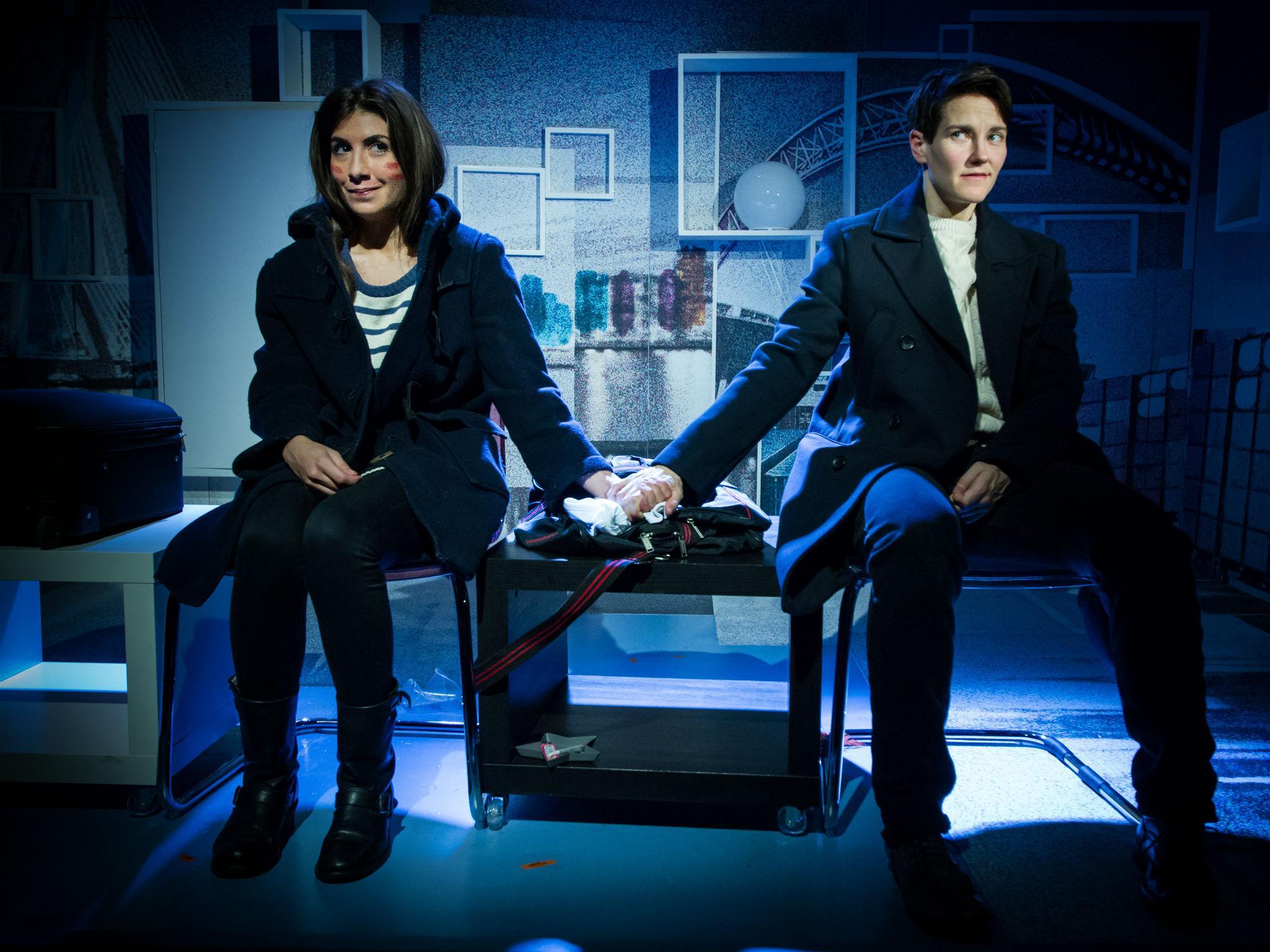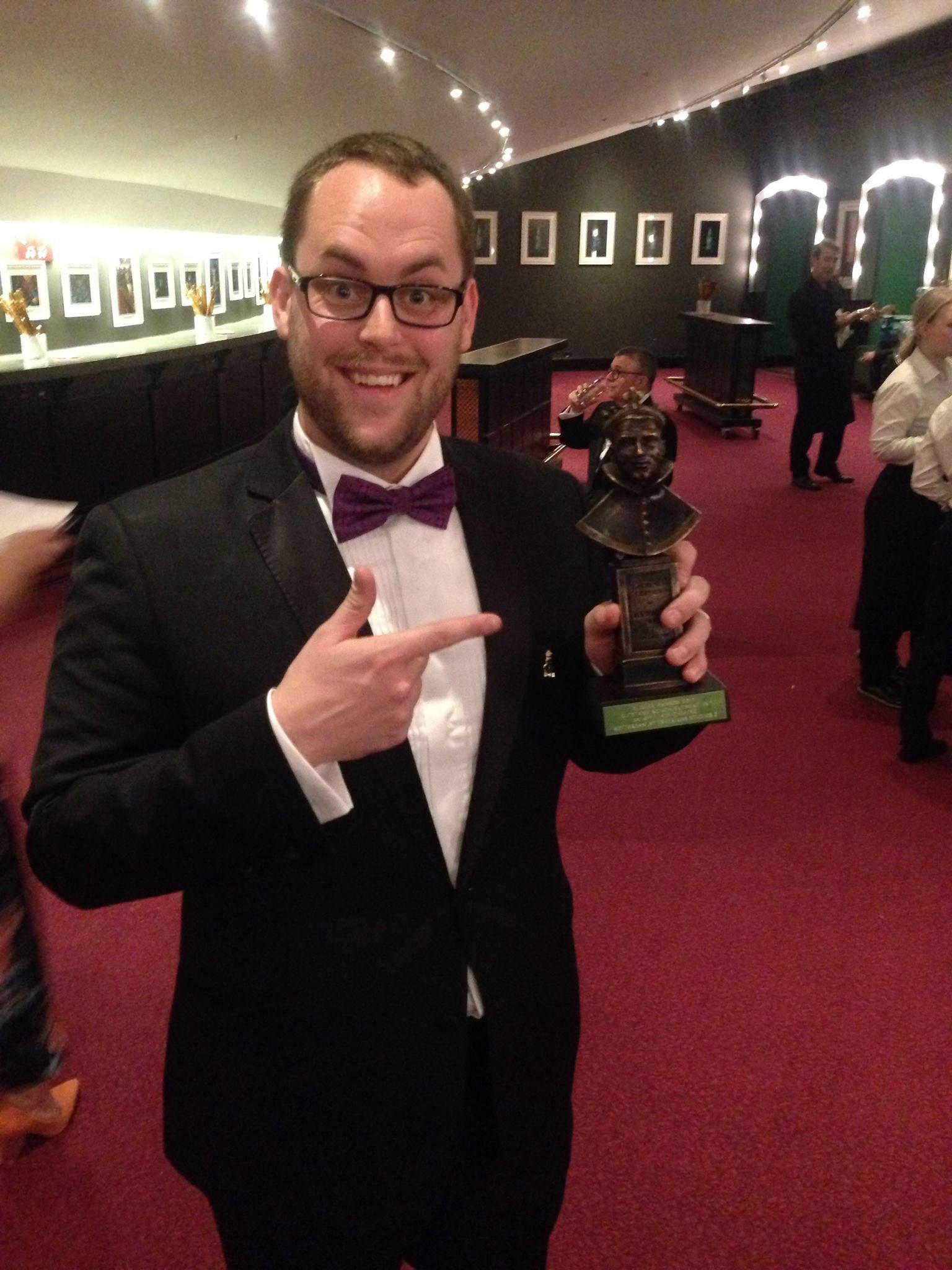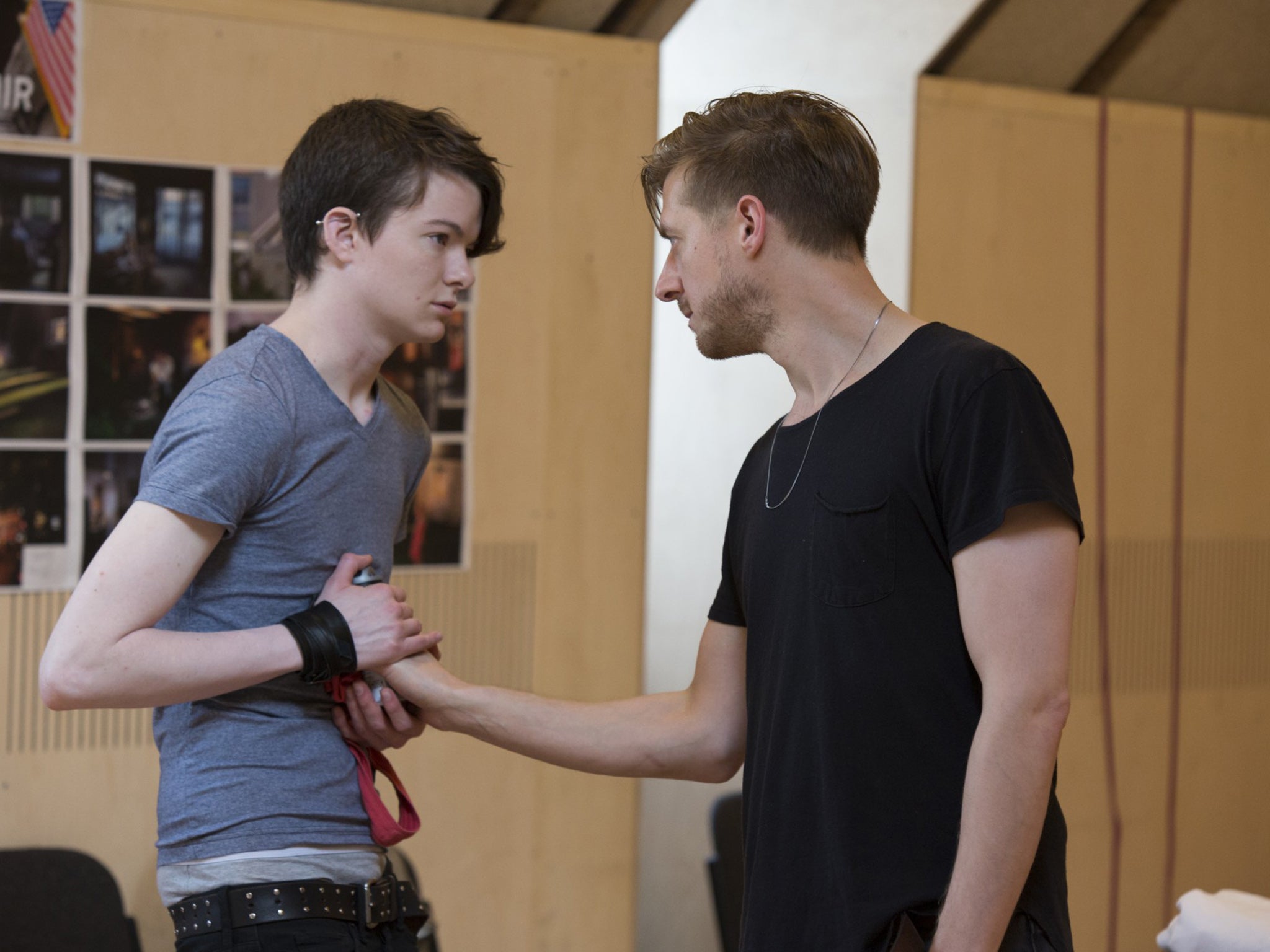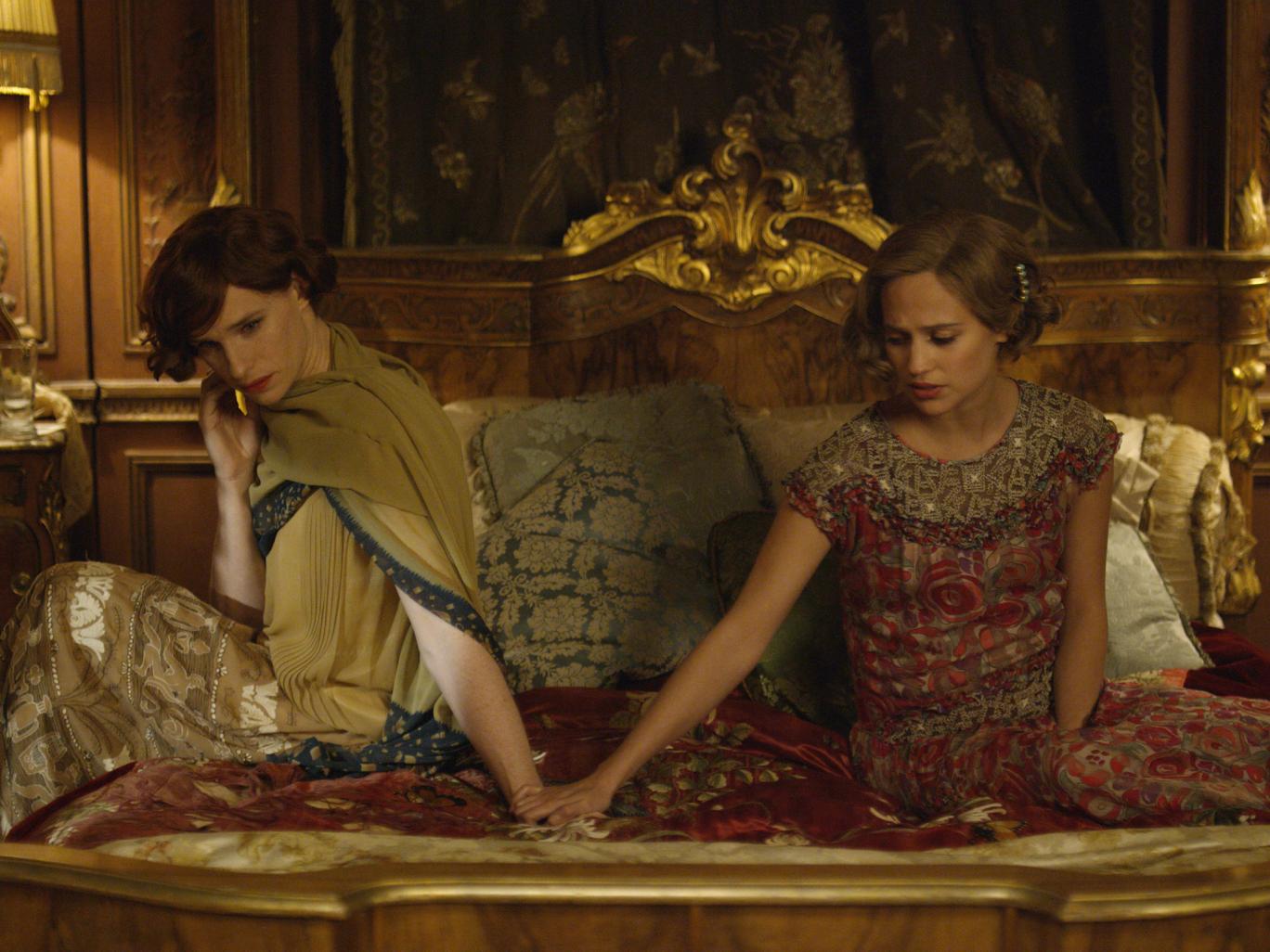How the play Rotterdam has led the way for transgender stories on stage
After its triumphant win at the 2017 Olivier Awards, and a sell-out run in New York, Jon Brittain's critically acclaimed 'Rotterdam' returns to the West End with more trans dramas hitting the stage including 'Hir' at the Bush Theatre

Your support helps us to tell the story
From reproductive rights to climate change to Big Tech, The Independent is on the ground when the story is developing. Whether it's investigating the financials of Elon Musk's pro-Trump PAC or producing our latest documentary, 'The A Word', which shines a light on the American women fighting for reproductive rights, we know how important it is to parse out the facts from the messaging.
At such a critical moment in US history, we need reporters on the ground. Your donation allows us to keep sending journalists to speak to both sides of the story.
The Independent is trusted by Americans across the entire political spectrum. And unlike many other quality news outlets, we choose not to lock Americans out of our reporting and analysis with paywalls. We believe quality journalism should be available to everyone, paid for by those who can afford it.
Your support makes all the difference.It was 2008 when Jon Brittain first started working on his play Rotterdam, about a lesbian couple where one half transitions to being a man. He had several friends who were transitioning gender, and was suddenly struck by how few trans stories ever got told.
Flash forward almost a decade, and the situation has – happily – changed, with many more visible transgender narratives and characters on TV and film, from Transparent to Orange is the New Black, The Danish Girl to Boy Meets Girl. Meanwhile, Rotterdam can claim to be leading the way on stage: after starting life in 2015 at the tiny London fringe venue, Theatre 503, it transferred to the West End, where it netted an Olivier award: the first ever for a play with a transgender lead. Rotterdam is now returning to the West End again, following a recent Stateside run off-Broadway.
Look at the rising tide of trans stories, and one striking aspect is the humour found in many of them – they largely aren’t painful melodramas about tragic lives, but smart, funny, bittersweet stories about relatable people. Rotterdam pulls off the same trick in the theatre: it is essentially a rom-com. The central couple, Alice and Fiona – who becomes Adrian – wittily bicker and banter their way around a big romantic obstacle. Alice, who identifies as a lesbian, suddenly finds she’s in a relationship with a man, Adrian, leading her to question: is she now… straight?

“It is a rom-com – but it’s not like one of the couple has got a job in LA, one’s got a job in New York; it’s that one’s got a very clear sense of who they are, which conflicts with the other person’s sense of who they are,” says Brittain. “I thought that provided a really complex and interesting set of hurdles for them to overcome.”
Humour was always going to be key. As the 30-year-old playwright points out, using a familiar comedic framework has two effects: it normalises the characters and their relationship, and it also warms the audience up for the more emotionally fraught moments.
“If you’re laughing you’re more relaxed, and if you’re relaxed you’re more open to other emotions too,” he suggests. “It’s really good to be able to use that vehicle [of the rom-com], which is quite welcoming, to tell a story about characters that you don’t always see on stage. To entertain someone is an excellent way to open them up to new thoughts.”
Anna Martine Freeman, who plays Adrian, agrees. “The humour breaks down the stereotypes and the tropes that often appear in LGBT narratives… no-one dies in this, no-one turns straight, no-one ends up crazy.”
In the time Brittain was writing the play, the visibility of the trans community has radically changed. Did he ever worry about seeming to be jumping on some kind of bandwagon?
“When Rotterdam first came on, it was the summer after Caitlyn Jenner announced her transition, and there was a part of me that worried it would look cynical. Will people think this is something I’d knocked up in a few months to capitalise on it?” he confesses. But now, Brittain is simply happy to be one story in an “eco-system” of different trans narratives gaining attention.

Still, theatre is different to TV and film – there hasn’t quite been the same wave of high-profile stories on our stages as on our screens yet, although more are coming. This week, American playwright Taylor Mac’s drama Hir opens at the Bush Theatre in London, featuring a central trans character, while the National Theatre of Scotland stage two trans dramas based on real experiences during the Edinburgh Fringe this summer, titled Adam and Eve. Very few of our main stages at big cultural institutions, however, have played host to trans stories.
“I know of more plays that have been written [on the subject] than have been put on,” muses Brittain when I ask if theatre is lagging behind other artforms. “I think there’s a lot of stuff on the fringe, there’s a lot of trans performers and theatre makers [out there]. It’s really about the big establishments, how they’re supporting them – I don’t think it’s that the talent isn’t there.”
Their own production could face criticism from the trans community, however: not only is it written by a cisgender straight white man, but the trans character is played by a cisgender actress too. There have been increasingly vocal complaints by trans actors, and activists, about plum parts going to non-trans actors – consider the furore around the Oscar-nominated performances of Eddie Redmayne in The Danish Girl or Jared Leto in Dallas Buyer’s Club.
Brittain, clearly the first to fret about giving offence, is painfully aware of this issue. “If someone was to say ‘you shouldn’t write this’, it’s not like I have a cast iron argument against it,” he says. “But I thought: if this doesn’t go on, it just means there’s one less play about trans characters. So I think it is a good thing to put out into the world.”
Brittain talked to trans friends while writing, as well as consuming as many first-hand accounts of trans experiences as he could; he also worked with Gendered Intelligence, an arts charity who work with young trans people, in developing the script and getting out the word about auditions when casting the play.

“We tried to see as many trans and non-binary people for the parts as possible,” says Brittain. “We were committed to trying to make that happen, and in the end we weren’t able to. [But] if anyone wants to criticise the show on those grounds, they’ve got a good point. I wouldn’t try to shout down anyone.” He pauses the self-flagellation for a second, laughing “have I equivocated enough?”
“Can you ask that question to other companies about cis roles?” interjects Freeman, pointing out that real equality won’t be achieved for trans actors till they’re able to audition for parts that have nothing to do with being transgender.
While being hyper-alert to potential criticisms the production might face, Freeman and Brittain are cheerily relieved to report they’ve had no kick-back yet.
“I’m super proud about being part of a story that stands really strongly in solidarity with the trans community,” Freeman says. “I’ve been overwhelmed at the response, across the board, with cis and trans people being really moved. For some people, it’s being able to connect to these issues that they might not have in their everyday life. But for some people it’s actually quite close to the bone.”
The emotional reactions the play has sometimes prompted have made them consider a new approach to audience care: having a ‘vibe checker’ hanging out during and after the show. It was an idea Freeman got from an activist friend – someone in the room that people affected by issues within the play can talk to, offering more information or support.
“We are going to be the conservatives’ nightmare of snowflake theatre makers,” laughs Brittain. But Freeman remains unabashed.
“I’m proud of that.”
'Rotterdam' is at the Arts Theatre from 21 June to 15 July
Join our commenting forum
Join thought-provoking conversations, follow other Independent readers and see their replies
Comments